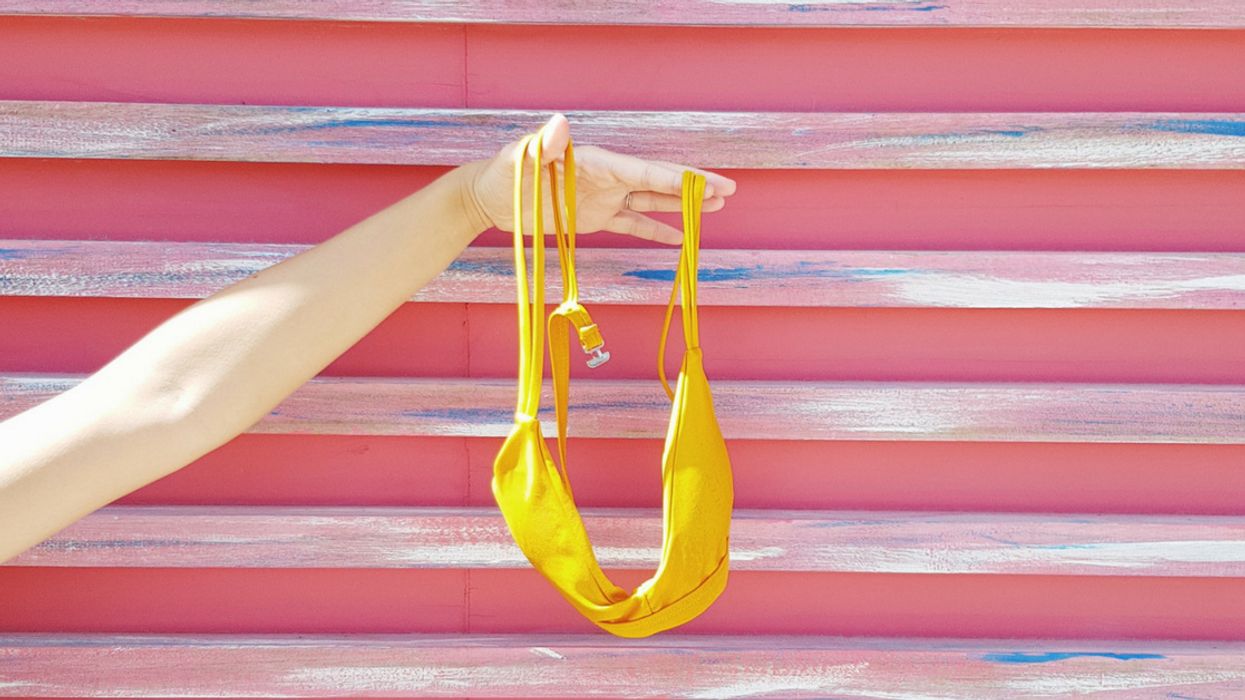January, 2000, CANCUN, Mexico - Six days ago, we were living in the 1900's. That really sounds historic now, doesn't it? 1900's. Then we woke up on a Saturday morning, not only in a new century, but also a new millennium. It was January 1, the year 2000! Just the sight of those three zeros in a row looked so elegantly futuristic. Never have we had the same sense of history and the future in such close proximity.
It is six days later and I am now in Cancun, Mexico for a corporate speaking engagement with a biotechnology firm called Bio-Rad. Lounging on my hotel room balcony, gazing out at the waves gently rolling in on the beach at this paradisiacal resort on the Yucatan peninsula, my thoughts range philosophically.
Mindful of our rich but turbulent history, we as a civilization have managed to make notable advances. Our Star Trek communication device, imaginative science fiction thirty-five years ago, is today a necessary nuisance -- the cell-phone. Fifteen years ago, in the whimsical time travel film, "Star Trek IV, The Voyage Home," 23rd century Scotty had a comic scene where he attempted to talk to a 20th-century computer. Today, such a device, a voice-command computer that answers back audibly, is not only reality, it is a commercial product that a number of Star Trek actors have endorsed. Most astounding is the transformation of our geo-political landscape. When "Star Trek" first went on the air in 1966, the world was locked in the grips of the coldest of cold wars. Two great powers, the Soviet Union and the Western Alliance, were glaring at each other threatening mutual nuclear annihilation. Yet, on "Star Trek," we had a valued member of the Enterprise crew who spoke with a Russian accent and took pride in his Russian heritage. Back then, this character, Pavel Chekov, was pure fiction, a wistful hope for mankind's future. Today, we have had in fact, a space station called Mir up in the sky on which we heard not only Russian and American accents, but crew members speaking in the Russian language and English that worked together in concert. The grotesque presence of the Berlin Wall is gone. The Soviet Union is broken and in economic shambles while the United States has enjoyed the longest economic prosperity in its history. Despite the concern for irrational terrorist attacks that tempered our new year's celebration, looking back, our recent history has been good.
Turning from the past to our future and gazing out at a seeming infinity of tomorrows, all we can see is a vast unknown. We know that there are some certainties that serve as the benchmarks of time. The zero that punctuates the end of the year 2000 reminds us that this will be another census year. The political debates that have already begun in earnest tell us that there will be another presidential election. And the surest verity of any year -- we will be paying taxes. But the rest is a great mystery. We hope we will enjoy success. We expect there will be challenges. We pray we will not have setbacks. But we don't know.
All we can do to shape the course of what is to come can be determined by what we do and how we do it. And all we have to guide us in our actions are the values and ideals that have successfully brought us to this point. We have managed to build the most vibrantly pluralistic nation in history, still mindful of the inequities and conflicts that exist. We have made our free capitalist system the exemplar of the global economy while aware of the challenges that the deterioration of our environment industrial development brings. We have a dynamic peoples' democracy, as good as -- and as fallible as -- the people who participate in it.
As I gaze out on the waves on the beach of Cancun, rolling in with the same rhythmic regularity that it has maintained through countless millennia, I get a humbling sense of our small part in a great force. Whatever we do, let us give it our very best, acting with confidence in our problem-solving ability, our innovative talent and our creative imagination.
Woman Was Fired For Refusing To Wear A Bra At Work—And Now She's Suing
Christina Schell, from Alberta, Canada, stopped wearing bras three years ago citing health reasons.
While Schell did not specify the health reasons, she did state she finds them to be "horrible."
But after her refusal to sign or adhere to a new enforced dress code policy to wear a bra or tank top under her work shirt at a golf course grill where she worked, Schell was promptly fired.
Now, the 25-year-old has filed a human rights violation against the Osoyoos Golf Club, Osoyoos, in British Columbia, Canada.
Schell said:
"I don't think any other human being should be able to dictate another person's undergarments."
When she asked the general manager, Doug Robb, why she had to comply, the manager told her the mandate was for her protection.
Robb allegedly said:
"I know what happens in golf clubs when alcohol's involved."
After losing her job, she brought the case to the British Columbia Human Rights Tribunal and told them the club's dress code was discriminatory because the rule didn't apply towards male employees.
Schell told CBC:
"It's gender-based and that's why it's a human rights issue. I have nipples and so do the men."
David Brown, an employment lawyer in Kelowna, BC, said gender-specific dress codes could be viewed as discriminatory under the BC Human Rights Code.
He stated:
"It's an interesting question as to whether or not an employer can dictate the underwear that women can wear, but they don't say anything about the underwear that men can wear, and does that create an adverse impact on the individual?"
Brown added:
"If this policy is found to be discrimination, the next question is does the employer have a bonafide occupational requirement to essentially impose this on the individual?"
"I'm kind of scratching my head as to what that occupational requirement would be."
@GlobalBC The policy is sexist the peopl supporting it are sexist. Hope she wins her complaint— Lori bell (@Lori bell) 1529692660.0
@Shelby_Thom @WoodfordCHNL @GlobalOkanagan @GlobalBC Then men should have to wear either a tank top or undershirt— caffene fiend (@caffene fiend) 1529624161.0
@SoldByBrock @Shelby_Thom @GlobalOkanagan @GlobalBC What does common courtesy have to do with wearing a bra? Breast… https://t.co/ZVI2xDdpgf— M Shumway (@M Shumway) 1529843759.0
As for the tank top option, due to working under oftentimes extreme heat serving tables outsides, Schell did not want to wear another layer of clothes just because of her gender.
Schell said:
"It was absurd. Why do you get to dictate what's underneath my clothes?"
Employment lawyer Nadia Zaman told CBC that the club can enforce a gender-specific policy as they deem necessary as long as the establishment can prove it is for the occupational safety of its workers.
But the attorney questioned if forcing female employees to wear a bra was applicable in this case.
Zaman stated:
"If they simply require that female employees wear a bra but then they don't have a similar requirement for males, and they can't really justify that … then there is a risk that their policy's going to be deemed to be discriminatory."
Under British Columbia's discrimination law, it is illegal for employers:
'to discriminate against any individual because of his race, color, religion, sex, or national origin'.
@GlobalBC @globalnews Logistically bras or the absence of does not impact health or work performance. That is my v… https://t.co/65cLHBMowf— Louisette Lanteigne (@Louisette Lanteigne) 1529769211.0
McDonald's employee Kate Gosek, 19, agrees with Schell in that the dress code is "unnecessary." She too was harassed by her employers at a McDonald's in Selkirk, Manitoba, over refusing to wear a bra.
"She just told me that I should put on a bra because, McDonald's—we are a polite restaurant and no one needs to see that."
Schell's case sparked plenty of debates on Twitter.
@DunnMan77 @GlobalBC It's just discriminatory, woman shouldn't have to wear bras if they don't want to. As well as… https://t.co/RXhRVWUuNy— Mary Johnson (@Mary Johnson) 1529685276.0
@DunnMan77 @GlobalBC Men do not have to wear underpants if they don't want to. As of right now there are no laws to… https://t.co/l8FuPVybWo— Mary Johnson (@Mary Johnson) 1529686418.0
@GlobalBC Women have the right not to be forced to wear a bra Shaving & makeup also is a choice. If you want to do… https://t.co/Ybkj6PLDnD— Lozan (@Lozan) 1529686156.0
@Lozan72 @GlobalBC I would completely understand her and your argument if we were talking about a potential law to… https://t.co/trRyNAubn4— Chris George (@Chris George) 1529690293.0
@GlobalBC This story frustrates me. There's no dress code equivalent for men? Well if I saw the outline of a male s… https://t.co/5YbAvXKRcO— Molly Max (@Molly Max) 1529705327.0
Schell is not alone in her disdain for bras.
@GlobalBC I personally HATE wearing a #bra absolutely hate it with passion and unashamed to admit it. I HATE BEING… https://t.co/GEi3LtxIDa— Lozan (@Lozan) 1529686305.0
Schell is still waiting to hear from the Human Rights Commission about her claim.
H/T - GettyImages, Twitter, Indy100, CBC











